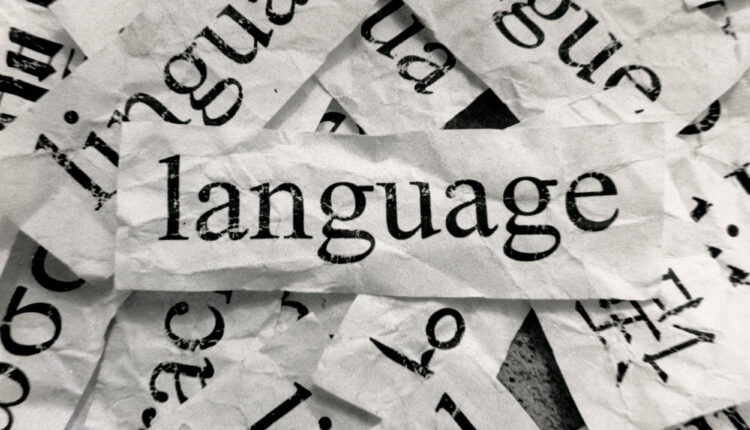LANGUAGE AS A TOOL OF OPPRESSION EXAMINING THE ROLE OF LANGUAGE IN COLONIALISM AND IMPERIALISM
By; Mehtahoor Nasir
mehtahoornasir@gmail.com
BS IR 1st semester from
National Defense University
Language is often seen as a simple tool for communication, a way to share thoughts and ideas. But it’s far more than that. It’s deeply tied to culture, carrying the soul of a nation within its words. It shapes how we interact, revealing social status, regional roots, and groups tied through dialects and speech patterns. Yet language isn’t just a bridge for connection; it is also a weapon for oppression, especially under imperialism and colonialism.
It becomes a battleground where identities are formed, silenced or reclaimed. Because language is woven into our lives, its power often goes unnoticed, shaping who we are and how we see the world. When imperial powers colonize, they tend to impose their own language as a tool of dominance. This is not only a threat to certain native languages but also harms cultural heritage and traditions, and this oppression fueled by imperialism and colonialism has a lasting effect on culture, identity and community.
Colonial powers used language as a tool to maintain control, imposing their tongues while sidelining native languages. This created a hierarchy where the colonizer’s language symbolized power and progress while local languages were seen as inferior. Language became both a means of oppression and a space for resistance, shaping lives in deeply personal and often heart-breaking ways. The philosopher Ludwig Wittgenstein famously stated, ‘‘The limit of my language means the limit of my world.’’
The main agenda of colonial and imperial powers by controlling the language factor was basically to erase indigenous languages, cultures and world views, replacing them with their beliefs and ideologies. The ruling class imposes its beliefs as universal truths, pressuring others to conform, often forcing others to abandon their values and identities, leaving them feeling invalidated and erased. In accepting these imposed ideals, marginalized groups often suppress their norms and values, leading to a loss of identity and self-erasure.
This dynamic reinforces the ruling class’s power while silencing diverse perspectives and traditions. This is described as ‘‘soft and velvety sovereignty’’ which means a subtle form of control that’ll feel gentle but is oppressive, and this unbalance of power will ultimately cause a discrepancy between the rich class growing stronger and the poor class becoming weaker. “Antonie Gramsci’’ the philosopher, considered ‘‘language domination’’ as a lower-class showing loyalty to the ruling powers, which led to their submission to this soft form of control.
In past, when European powers colonized certain regions, they bought guns and germs with not only them but also their language, such as English, French, Spanish and Portuguese, on a colonized territory to assess dominance and facilitate control. Similarly, in Africa, the European language became dominant; many locals tend to adopt that language for social mobility and access to opportunities. The colonizer’s language was not only a medium of instruction; it was presented as the key to progress, modernity and success.
To speak it fluently was to be educated, civilized and forward-thinking. Speaking and holding onto one’s native tongue was to risk being labelled as backward, stuck in the past, or even primitive. A judgment that carried a social stigma but a deep personal wound, as though the very essence of one’s identity was something to be ashamed of. Whereas native languages were discouraged in educational settings. Though it seems like the era of colonialism has ended, the legacy of linguistic oppression ‘‘still stands still’’ lingers in the form of linguistic imperialism.
English has emerged as a global Lingua Franca; though it can open doors to new opportunities, it can also overshadow local languages and traditions. For example, in India which has extensive linguistic variety, English has become the language of elite class and also as a medium of instruction in many notable schools and universities.
The dominance of English and other languages is not just a matter of linguistic preference, it’s a reflection of the hierarchy of powers; so when we talk about linguistic imperialism, it’s not just the language taking control but it also carries a number of ideologies and values with them so when a dominant language is imposed , it suppresses not only its native language but also have a huge impact on its cultural norms and power structure.
Hence language is not merely a tool of communication, as it played a major role in oppression that imperial and colonial powers have wielded. Throughout history, dominant powers have always used language as a tool in erasing indigenous languages and cultures. On the other hand, language has also played a major role in the perseverance of norms and identities of nations. In the current world, the promotion and resilience of linguistic diversity is far more important than anything ever. By embracing linguistic diversity, we can create such a world where all languages and voices are respected and valued.





Comments are closed, but trackbacks and pingbacks are open.